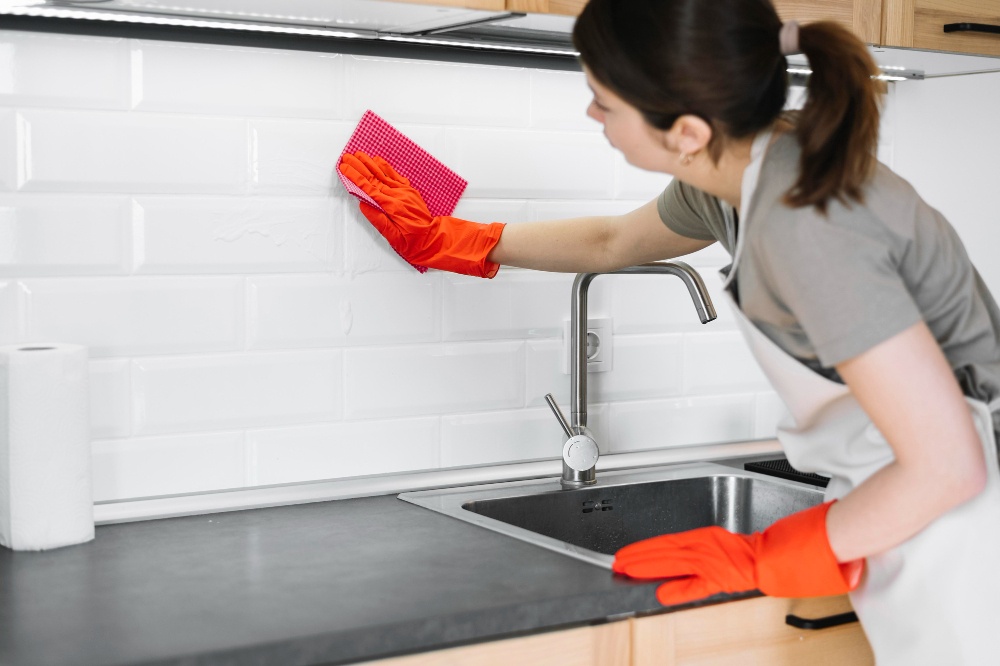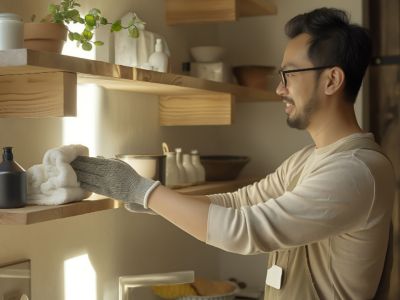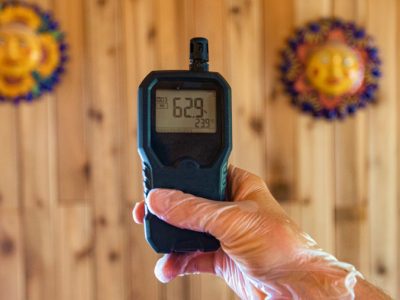Sanitizing Kitchen Cleaning Using Hydrogen Peroxide: What You Should Know?

Common surfaces such as kitchen-top harbor millions of bacteria, most of which could potentially harm your family’s health. It is thus essential that you keep such surfaces clean and sanitized. So, to help you out, we’re here with tips for kitchen cleaning.
A safe and trustworthy cleaning method is hydrogen peroxide – a potent sanitizing agent. It has disinfecting properties and has a gentle effect on most surfaces. This makes it an ideal agent for kitchen cleaning.
Professionals at “Live Clean Today” in Spokane recommend hydrogen peroxide as a go-to solution for those seeking a non-toxic yet effective way to clean their kitchen surfaces. Let’s explore how to use hydrogen peroxide effectively and other tips for maintaining sanitized kitchen surfaces.
The Benefits of Hydrogen Peroxide
Hydrogen peroxide has a powerful oxidizing effect on most microorganisms, such as viruses, bacteria, and other germs. It is also comparatively better than bleach as it is non-toxic and breaks down quickly into dissolvable components.
Some of the benefits of using hydrogen peroxide to clean your kitchen are as follows:
- It is excellent at removing stains, grease, and other stubborn dirt from kitchen surfaces, pans, and pots effectively
- It can also kill harmful microorganisms such as mold, viruses, bacteria, and spores. They have the potential to contaminate the food, thereby causing illness.
This also helps remove odors from your kitchen garbage bin.
The shelf life of vegetables can be extended by soaking and washing them in hydrogen peroxide solution.
Preparing the Hydrogen Peroxide Solution
A 3% hydrogen peroxide solution, commonly available at drugstores, is sufficient for general kitchen cleaning. You can use it directly from the bottle or dilute it with water for a less concentrated solution.
You can also check out the following DIY kitchen cleaning solution using Hydrogen Peroxide:
All-purpose Cleaner
You can make an all-purpose cleaner for your kitchen using hydrogen peroxide. To do so, take a spray bottle and mix one cup of it with two cups of distilled water. Add two tablespoons of lemon juice to this mixture and shake well. You can immediately start cleaning your kitchen with this mixture.
If you want a fresh smell and extra antibacterial power, add 6-10 drops(depending on how strong you want the scent to be) of essential oils such as peppermint oil, tea tree oil, eucalyptus oil, etc.
Disinfectant Wipes
You can also make disinfectant wipes using Hydrogen Peroxide. To make this, cut a roll of paper towel in half. Then, cover it in a large container with a lid.
Take another bowl and add one-fourth cup of hydrogen peroxide, one and half cups of water, one-fourth cup of rubbing alcohol, and 10-12 drops of essential oil of your choice.
Mix all of them in the bowl and then pour them into the container with the paper towel. Put the container in a dark and cool place and use the wipes as and when required.
Using Hydrogen Peroxide While Doing Laundry
Apart from cleaning the kitchen, it can also be used to brighten up your laundry. To do so, add a cup of hydrogen peroxide to your washer before dumping your clothes and water inside the machine.
If you don’t have a washing machine or are not using one at the time, then you can also keep the clothes soaked in a solution consisting of one part hydrogen peroxide and eight parts water in a bucket.
Keep your clothes soaked in this solution for 15-30 minutes, and then wash them off as usual. This solution helps whiten white-colored clothing and brighten colored clothing. In case of stains, you can also pour hydrogen peroxide solution directly on the spot and then wash it normally.
Tips to Remember While Using Hydrogen Peroxide
Some tips to remember while using this on a regular basis:
Never use or mix vinegar and hydrogen peroxide with each other, as together, they create a toxic substance called peracetic acid.
Always use distilled water when preparing any DIY solution. This will help avoid spotting and other marks caused by minerals present in the tap water.
Read on to learn about other aspects of Hydrogen Peroxide:
How to Apply?
To sanitize your countertops, simply pour or spray hydrogen peroxide onto the surface. Let it sit for a few minutes to kill germs and bacteria effectively. This dwell time is crucial for the disinfecting process.
Wiping the Surface
After letting the hydrogen peroxide sit, wipe the surface with a clean, damp cloth. This will remove any remaining germs and excess liquid, leaving your countertops clean and sanitized.
Safe for Various Countertop Materials
Hydrogen peroxide is generally safe for most countertop materials, including granite, marble, and laminate. However, it’s always a good practice to test it on a small, inconspicuous area first to ensure it doesn’t damage the surface.
Regular Cleaning Routine
Incorporate hydrogen peroxide into your regular cleaning routine. Regular disinfection of kitchen surfaces is essential, especially areas frequently touched or used for food preparation.
Combining with Baking Soda for Tough Stains
For tougher stains, you can make a paste of baking soda and hydrogen peroxide. Apply this paste to the stain, let it sit for a few minutes, then scrub gently with a non-abrasive sponge and rinse.
Cleaning Cutting Boards and Utensils
It can also be used to clean cutting boards and utensils. Soak them in a hydrogen peroxide solution or spray directly, then rinse with water.
Storing Hydrogen Peroxide Properly
Store this in its original dark container, as exposure to light can break it down. You should keep the container in a cool, dry place, away from children and pets. Note that hydrogen peroxide tends to lose its effectiveness over time. So make sure to use it within two months.
Why Avail Professional Cleaning Services?
For those who prefer professional assistance, “Live Clean Today” in Spokane offers comprehensive kitchen cleaning services, including the use of safe and effective sanitizing agents like hydrogen peroxide.
Hydrogen peroxide is an excellent choice for sanitizing kitchen surfaces. It’s practical, safe, and eco-friendly, making it suitable for regular use in your kitchen cleaning routine.
By following these tips and incorporating them into your cleaning practices, you can ensure that your kitchen remains a clean and hygienic space for cooking and family gatherings. For those seeking professional cleaning services, provide expert solutions tailored to your specific kitchen cleaning needs.
Read Also:

























